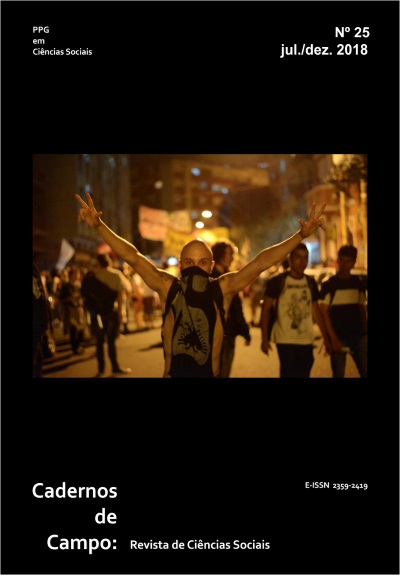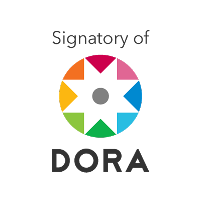Mídias sociais digitais: implicações sobre o processo democrático
Palavras-chave:
Mídias sociais digitais, Facebook, Democracia, Eleições,Resumo
As mídias sociais digitais (MSD) acentuam a difusão de notícias e proporcionam maior interação entre indivíduos em sociedades conectadas à internet, além de exibir participação crescente em várias atividades afeitas à propaganda, marketing ou à própria política. Em um contexto no qual a democracia representativa se depara com dificuldades à sua capacidade de oferecer soluções a questões cada vez mais complexas, as MSD permitem maior comunicação entre indivíduos por meio da Rede Mundial de Computadores. Neste aspecto, a utilização das tecnologias chama a atenção por possibilitar dividendos a candidatos em matéria de obtenção de apoio a partir do plano virtual. Assim, o artigo busca, em primeira linha, dar visibilidade ao fenômeno. A considerar o desempenho do candidato à Presidência Jair Bolsonaro (PSL) nas pesquisas de intenção de voto, questiona-se em que medida a convergência tecnológica entre internet, comunicação sem fio e aplicativos móveis – como os do Facebook e Twitter – oferece suporte à ascensão do referido ator político, em meio a um contexto no qual a democracia representativa experimenta dificuldades para atender a contento demandas e expectativas populares.
Downloads
Referências
BETIM, Felipe. Fernando Holiday, o vereador incendiário nas redes e cordial na Câmara. El País, Madrid, 3 Nov. 2017. Disponível em: https://brasil.elpais.com. Acesso em: 25 Jun. 2018.
BRASIL. Propaganda Eleitoral na Internet. Justiça Eleitoral, 12 Jun. 2018. Disponível em: <http://www.justicaeleitoral.jus.br/arquivos/propaganda-eleitoral-na-internet>. Acesso em: 21 Jun. 2018.
CROZIER, Michel J.; HUNTINGTON, Samuel P.; WATANUKI, Joji. The Crisis Of Democracy. Report on the Governability of Democracies to the Trilateral Commission. 1.ed. New York University Press, 1975, pp. 157-171.
DELLA PORTA, Donatella.; MATTONI, Alice. Patterns of Diffusion and the Transnational Dimension of Protest in the Movements of the Crisis: An Introduction. In: Spreading Protest Social Movements in Times of Crisis. 2.ed. ECPR Press, 2014, pp. 1-18.
DIRETORIA DE ANÁLISE DE POLÍTICAS PÚBLICAS. Robôs, redes sociais e política no Brasil. Estudo sobre interferências ilegítimas no debate público na web, riscos à democracia e processo eleitoral de 2018. Fundação Getúlio Vargas, Rio de Janeiro, 2017. Disponível em: <http://dapp.fgv.br/publicacoes/>. Acesso em: 12 Jul. 2018.
FACEBOOK PARA EMPRESAS. 102 milhões de brasileiros compartilham seus momentos no Facebook todos os meses. Facebook Brasil, São Paulo, 19 Abr. 2016. Disponível em: https://www.facebook.com/business/news. Acesso em: 21 Jun 2018.
FOA, Roberto S.; MOUNK, Yascha. The signs of deconsolidation. Journal of Democracy, Washington, vol.1, n.28, pp. 5-14, 2017.
FUNG, Archon.; GILMAN, Hollie R. SHKABATUR, Jennifer. Six Models for the Internet + Politics. International Studies Review, vol.1, n.1, pp. 30-47, 2013.
GOLDZWEIG, Rafael S.; SCHMECHEL, Dinah. Deciphering the populist playbook in 140 characters. A Cross-country analysis of the patterns of Twitter use by populists. Master’s Thesis submitted to the Hertie School of Governance. Berlim: Hertie School of Governance, 2017.
INSTITUTO DE PESQUISAS DATAFOLHA. Intenção de voto para presidente da República. Instituto de Pesquisas Datafolha, São Paulo, 11 Jun. 2018. Disponível em: http://datafolha.folha.uol.com.br. Acesso em: 25 Jun. 2018.
KNIGHT FOUNDATION. American Views: Trust, Media And Democracy. Knight Foundation, Miami, 16 Jan. 2018. Disponível em: <https://knightfoundation.org/reports/american-views-trust-media-and-democracy>. Acesso em: 10 Jul. 2018.
LANDLER, Mark. In Inaugural Address, Trump Continues to Shun Establishment. The New York Times, 20 Jan. 2017. Disponível em: <https://www.nytimes.com/2017/01/20/us/politics/trump-presidency.html>. Acesso em: 10 Jul. 2018.
LIPSMAN et. al. The Power of “Like”. How Brands Reach (and Influence) Fans Through Social-Media Marketing. Journal of Advertising Research, Oxfordshire, vol. 1, n.1, pp. 40-52, 2012.
LOTAN et al. The Revolutions Were Tweeted: Information Flows During the 2011 Tunisian and Egyptian Revolutions. International Journal of Communication, Los Angeles, vol. 1, n. 5, pp. 1375–1405, 2011.
MACHADO, Leandro. Por que 60% dos eleitores de Bolsonaro são jovens? BBC Brasil, São Paulo, 16 nov. 2017. Disponível em: <https://www.bbc.com/portuguese/brasil-41936761>. Acesso em: 26 jun. 2018.
NYE, Joseph S. Prologue. In: NORRIS, Pippa (Org.). Critical Citizens: Global Support for Democratic Governance. 1.ed. Oxford University Press, 1999.
NIELSEN COMPANY. 2016 Nielsen Social Media Report. Nielsen Company, New York, 17 jan. 2017. Disponível em: http://www.nielsen.com/us/en/insights/reports/2017/2016-nielsen-social-media-report.html. Acessado em: 24 jun. 2018.
NORRIS, Pippa. Critical Citizens: Global Support for Democratic Governance. 1.ed. Oxford University Press, 1999.
PHARR, Susan et al. A Quarter-Century of Declining Confidence. Journal of Democracy, Washington, vol. 1, n. 11, p. 5-25, 2000.
PIVA, Juliana D.; MELLO, Igor.; SALGADO, Daniel. Bolsonaro aposta nas redes sociais para estruturar campanha. O Globo. Rio de Janeiro, 16 abr. 2018. Disponível em: <https://oglobo.globo.com/brasil/bolsonaro-aposta-nas-redes-sociais-para-estruturar-campanha-22592586>. Acesso em: 26 jun. 2018.
STREECK, Wolfgang. As Crises do Capitalismo Democrático. Novos Estudos, São Paulo, vol. 1, n. 92, pp. 35-56, 2012.
THE ECONOMIST. Do social media threaten democracy? The Economist, Londres, 4 nov. 2017. Disponível em: <https://www.economist.com/leaders/2017/11/04/do-social-media-threaten-democracy>. Acesso em: 12 Jul. 2018.
THE OMIDYAR GROUP. Is Social Media a Threat to Democracy? The Omidyar Group, 1 Out. 2017. Disponível em: <https://www.omidyargroup.com/wp-content/uploads/2017/10/Social-Media-and-Democracy-October-5-2017.pdf>. Acesso em: 25 Jun. 2018.
TUCKER, Joshua et. al. From Liberation to Turmoil: Social Media And Democracy. Journal of Democracy, Washington, vol. 28, n. 4, pp. 46-59, 2017.
TUFEKCI, Zeynep.; WILSON, Christopher. Social Media and the Decision to Participate in Political Protest: Observations From Tahrir Square. Journal of Communication, Oxford, vol. 1, n. 2, pp. 363–379, 2012.
XENOS, M. A.; MACAFEE, T.; POLE, A. Understanding variations in user response to social media campaigns: A study of Facebook posts in the 2010 US elections. New Media & Society, Chicago, vol. 1, n. 1, pp: 1-17, 2015.









